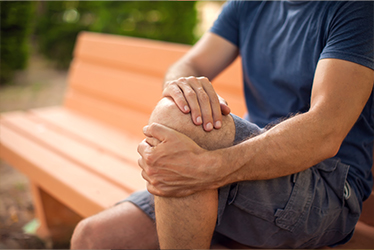
Arthritis patients and joint cartilage damage
Arthritis is a chronic disease that affects the joints, and the most common symptom is joint pain. Different types of arthritis can affect joints in different ways, but most types of arthritis can cause joint cartilage damage. In this blog post, you will find comprehensive information about people with arthritis and joint cartilage damage. In the subheadings, we will discuss the types of arthritis, symptoms of joint cartilage damage, treatment options and tips for preventing the disease.
Types of arthritis and joint cartilage damage
- Osteoarthritis: The most common type of arthritis, usually caused by the wear and tear of cartilage in the joints with aging.
- Rheumatoid arthritis: An autoimmune disease that causes inflammation and damage to the joints.
- Psoriatic arthritis: A type of arthritis that occurs in people with the skin disease psoriasis.
- Gout: A disease characterized by the accumulation of uric acid, which can cause joint inflammation.
Symptoms of Joint Cartilage Damage
- Joint pain, especially during movement or weight bearing
- Stiffness or stiffness in the joints
- Swelling in the joints
- Difficulty moving joints
- Crunching or creaking sound coming from joints
Treatment of Joint Cartilage Damage
There is no single solution for the treatment of joint cartilage damage. Treatment depends on the type of arthritis, the severity of the joint damage and the patient's general health. Treatment options include the following:
- Medications: Painkillers, non-steroidal anti-inflammatory drugs (NSAIDs) and disease-modifying drugs (DMARDs) can be used to relieve pain and inflammation.
- Physical therapy: Exercises and stretching techniques can help improve joint range of motion and muscle strength.
- Supportive devices: Bandages, splints and orthopedic shoes can help relieve pain by stabilizing and de-stressing the joints.
- Weight loss: Being overweight or obese can put extra strain on joints and increase pain. Losing weight can help relieve joint pain.
- Cortisone injections: Cortisone injections into the joint can be used to temporarily relieve severe pain.
- Surgery: In severe cases that do not respond to the above treatments, surgical procedures such as joint replacement may be required.
Disease Prevention
To prevent or delay articular cartilage damage, it is necessary to exercise regularly, maintain a healthy weight, eat a balanced diet, avoid smoking, avoid overstraining the joints and follow the treatment recommended by the doctor.
2024-06-17